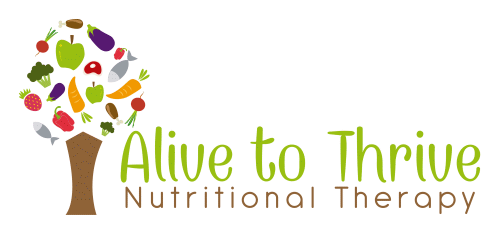The proper digestion of our food is vitally important to the health or our bodies. Our bodies rely on the nutrients received from our food for all of it’s functions. In order to get all of the nutrients and fuel from our food, we must break down the food we eat into small enough particles so that the nutrients can pass through the wall of our digestive tract into the blood vessels and then be used by our cells. Fats must be broken into fatty acids, proteins into amino acids and carbohydrates into glucose molecules.
Digestion can only happen in a parasympathetic or relaxed state. This is why it is so important to sit down to a relaxing meal at the table with our family and friends and really enjoy our meals. Saying grace or giving thanks before a meal is another way to put us into the parasympathetic state.
Digestion begins in our brains where we start the digestion process by thinking about our food and smelling our food. This simple process primes our digestive juices to get the digestive process started. That is why our stomachs growl when we smell great smelling food.
Once we taste our food, we continue the process of digestion by salivating on our food and chewing our food. Saliva contains amylase, an enzyme that helps to chemically break down complex carbohydrates. The act of chewing mixes our food with the saliva and amylase and starts the physical breakdown of our food. This chewing is so important because our stomachs do not have teeth! If we do not chew our food well, this produces a great strain on the stomach and the further south organs of digestion that have to work harder to break down our food.
Once we swallow the food, the food passes through the esophagus into our stomach. Our stomach secretes Hydrochloric Acid that helps further break down our food, helps sterilize our stomach, and kills bacteria and parasites. Our stomachs are designed to be at a pH of 1.5-3, which is almost pure acid. According to Jonathan Wright MD and his book, “Why Stomach Acid is Good for You,” most Americans (90%) do not make enough stomach acid. When food is not acidic enough, fats rancidify, proteins putrefy, and carbohydrates ferment. These maldigested foods cause the backward flow of food into the esophagus which is not designed to handle the acidic pH.
When food finally passes through the stomach into the top of the small intestine, at this point it is called chyme. The acidic chyme triggers the pancreas to secrete bicarbonate that neutralizes the pH of the chyme. The chyme also triggers the pancreas to release pancreatic enzymes that further breakdown fats, protein and carbohydrates. Fat contained in the chyme triggers the gall bladder to release bile which serves to emulsify the fats so they can be absorbed by our bodies.
Once the chyme moves further down the small intestine, the nutrients are ready to be absorbed through the intestinal lining into our blood stream where they will be carried all over our bodies.
Any remaining chyme will pass through the small intestine into the large intestine where water is recycled, and any remaining food is recycled by our gut microbes. Finally the large intestine forms and expels feces.
Digestion is an amazing process designed by our creator to help us nourish ourselves. Digestion is a north to south process. If something goes wrong early on during digestion, things keep going wrong further south. Even if we eat a perfectly healthy and nourishing diet, if we are not digesting our food properly, we are not going to be very healthy.
Nutritional Therapy Practitioners are trained to help our clients improve their digestion. I would love to work with you to make sure you are obtaining the maximum nutrition from your food. I especially love working with people who are suffering from constipation, bloating and gastric reflux. Contact me today!




